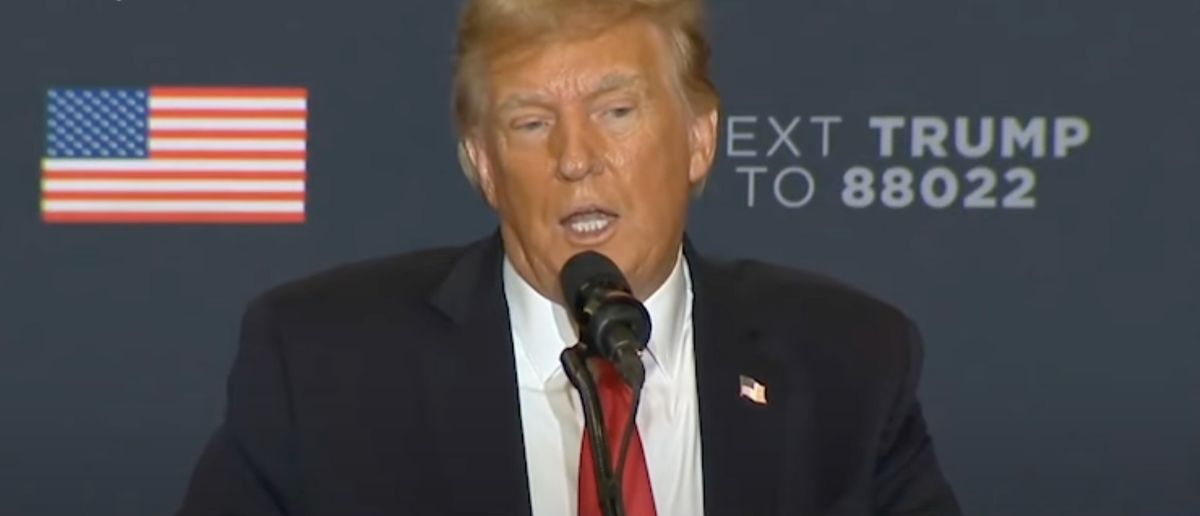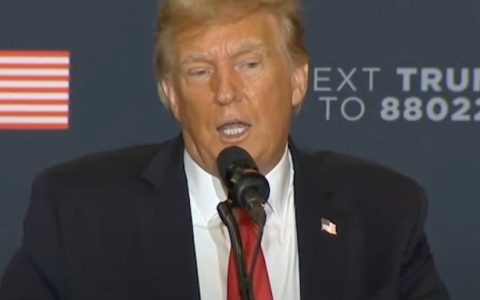
The Republicans have taken back Senate control. But the chaos is only beginning.
And this secret U.S. Senate election has big consequences for Trump.
With Mitch McConnell on his way out of Republican leadership in the U.S. Senate chamber, the GOP brass in Congress are trying to find a replacement to lead the new Republican majority in the next Congress. This has caused a ton of jockeying and positioning behind the curtains.
Largely speaking, though, the conservative voters and many Republican U.S. Senators are indicating that they will not be supporting any Senate majority leader candidate who is a RINO like Mitch McConnell who won’t hold the line on the important issues. McConnell was always quick to cut a deal with Democrats and the Washington, D.C. political class to save his political career.
A few names came forward as top picks for the new Senate leadership role, including U.S. Senators John Cornyn, Rick Scott, and John Thune. Cornyn was viewed as one of the most Mitch McConnell-like Republicans on the table, but he was unsuccessful in his bid.
Senator John Thune Elected Senate Republican Leader, Succeeding Mitch McConnell
Senator John Thune of South Dakota has emerged victorious in a competitive three-way race to become the Senate Republican Leader for the first two years of President-elect Donald Trump’s second term. Thune, currently the Senate Republican whip and a key figure in GOP leadership, defeated Senator John Cornyn of Texas in the second round of voting by a margin of 29 votes to 24.
The secret ballot vote, which required the winning candidate to secure at least 27 votes, marked a significant shift in Senate Republican leadership. Senator Rick Scott of Florida, who was also vying for the position, received just 13 votes in the first round, the lowest of the three candidates, and was eliminated from the race before the second round of voting.
Thune’s election as Senate Majority Leader ends the 17-year tenure of Senator Mitch McConnell of Kentucky, who has led Senate Republicans since 2007. Thune, who is currently serving his fourth term in the Senate, has long been seen as a senior figure in Republican leadership. He has held the role of Senate Republican whip since 2019 and will now take on the top position as the GOP seeks to navigate the next phase of the Trump presidency.
The leadership contest saw various senators backing different candidates. Senator Scott, who ran a vigorous campaign, garnered endorsements from prominent Republicans including Senators Mike Lee of Utah, Marsha Blackburn of Tennessee, Ted Cruz of Texas, Bill Hagerty of Tennessee, Tommy Tuberville of Alabama, Rand Paul of Kentucky, Ron Johnson of Wisconsin, and Marco Rubio of Florida.
🚨 #BREAKING: Senate Majority Leader John Thune has just vowed to ram through Trump’s cabinet nominees “quickly” so they can “begin to implement Trump’s agenda”
HOLD HIM TO IT! DO NOT RELENT!
pic.twitter.com/zdgEZgU2OX— Nick Sortor (@nicksortor) November 13, 2024
In contrast, Senator Thune’s candidacy was supported by Senators Mike Rounds of South Dakota, John Hoeven and Kevin Cramer of North Dakota, and Markwayne Mullin of Oklahoma. Additionally, Senator Steve Daines of Montana, the current chair of the National Republican Senatorial Committee (NRSC), also threw his weight behind Thune.
In a surprising twist, the only public endorsement for Cornyn came from Senator Josh Hawley of Missouri, who was the lone Republican to back the Texas senator’s bid for leadership.
While Donald Trump did not formally endorse any particular candidate, he played an influential role in the leadership race by making clear his expectations for Senate Republicans. On November 10, Trump urged all three candidates to support recess appointments, which would allow his nominees to bypass the Senate confirmation process and take office more swiftly.
“Any Republican Senator seeking the coveted LEADERSHIP position in the United States Senate must agree to Recess Appointments (in the Senate!), without which we will not be able to get people confirmed in a timely manner,” Trump wrote on X, the platform formerly known as Twitter. Trump also called for a halt to judicial confirmations during this period, citing the need for Republicans to focus on leadership and prevent Democrats from advancing their judicial nominations.
In response, Thune signaled his openness to Trump’s suggestion, emphasizing the need for quick action on judicial and executive nominations. “We must act quickly and decisively to get the president’s nominees in place as soon as possible, & all options are on the table to make that happen, including recess appointments. We cannot let Schumer and Senate Dems block the will of the American people,” Thune wrote on X.
The conservative grassroots base has given a mixed response to the news of Thune being elected to lead the Republican majority in the U.S. Senate. Ultimately, many conservatives are holding onto hope that he will get to work on Trump’s agenda and are holding out judgement until they see what happens.
John Thune is Senate Majority Leader.
He has a short window to show us he will support President Trump, fill his cabinet, confirm his judges, and pass his agenda.
If he does, we will support him.
If he doesn't, we will work to remove him.
— Charlie Kirk (@charliekirk11) November 13, 2024
Meanwhile, Scott’s campaign for leadership drew significant support from outside of Congress, including influential figures in Trump’s orbit such as tech mogul Elon Musk and independent presidential candidate Robert F. Kennedy Jr. These endorsements added a layer of outside momentum to Scott’s bid, though it was ultimately Thune who secured the majority of votes within the Senate Republican caucus.
As Thune prepares to take the helm of Senate Republicans, he faces the challenge of guiding the GOP through a pivotal period as Trump embarks on his second term in office. With a divided Senate and a strong push from Trump and conservative factions, Thune’s leadership will be closely watched as the party navigates the complex political landscape ahead.
Stay tuned to the DC Daily Journal.





